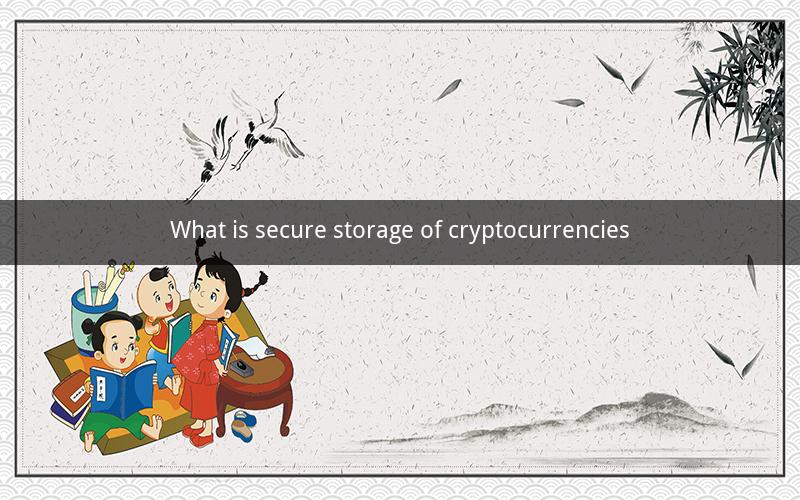
Table of Contents
1. Introduction to Cryptocurrency Secure Storage
2. Understanding the Importance of Secure Storage
3. Types of Secure Storage Solutions
- Hardware Wallets
- Software Wallets
- Paper Wallets
4. Best Practices for Secure Storage
5. Risks and Challenges in Secure Storage
6. The Role of Multi-Factor Authentication in Secure Storage
7. Legal and Regulatory Considerations
8. Future Trends in Cryptocurrency Secure Storage
9. Conclusion
1. Introduction to Cryptocurrency Secure Storage
Cryptocurrency, as a digital asset, requires secure storage solutions to protect it from theft, loss, and unauthorized access. Secure storage of cryptocurrencies is crucial for maintaining the integrity and value of digital assets. This article explores the various aspects of secure storage, including types of solutions, best practices, risks, and future trends.
2. Understanding the Importance of Secure Storage
The importance of secure storage cannot be overstated. Cryptocurrencies are vulnerable to various threats, such as hacking, phishing, and malware. Without proper security measures, investors can lose their entire cryptocurrency holdings. Secure storage solutions help mitigate these risks and ensure the safety of digital assets.
3. Types of Secure Storage Solutions
There are several types of secure storage solutions available for cryptocurrencies, each with its own advantages and disadvantages.
- Hardware Wallets: Hardware wallets are physical devices designed to store cryptocurrencies offline. They offer the highest level of security, as they are not susceptible to online threats. Examples include Ledger Nano S, Trezor Model T, and KeepKey.
- Software Wallets: Software wallets are digital applications that store cryptocurrencies on a computer or mobile device. They are more convenient than hardware wallets but less secure. Examples include Electrum, Exodus, and MyEtherWallet.
- Paper Wallets: Paper wallets are physical documents containing private and public keys. They are considered one of the most secure storage methods, as they are not connected to the internet. However, they can be easily damaged or lost.
4. Best Practices for Secure Storage
To ensure the safety of your cryptocurrencies, it is essential to follow best practices for secure storage:
- Use strong, unique passwords for all accounts and devices.
- Enable two-factor authentication (2FA) on all accounts.
- Regularly update software and applications.
- Backup your cryptocurrency wallet(s) to a secure location.
- Be cautious of phishing scams and suspicious links.
5. Risks and Challenges in Secure Storage
Despite the various secure storage solutions available, there are still risks and challenges to consider:
- Hardware wallets can be damaged or lost.
- Software wallets can be infected with malware.
- Paper wallets can be destroyed or lost.
- Human error, such as losing a password or private key, can lead to loss of access to cryptocurrencies.
6. The Role of Multi-Factor Authentication in Secure Storage
Multi-factor authentication (MFA) adds an additional layer of security to cryptocurrency storage. MFA requires users to provide two or more forms of identification, such as a password and a unique code sent to a mobile device. This helps prevent unauthorized access to cryptocurrency accounts.
7. Legal and Regulatory Considerations
The legal and regulatory landscape surrounding cryptocurrency secure storage is continually evolving. Governments and financial institutions are working to regulate the industry and protect consumers. It is essential to stay informed about the latest regulations and compliance requirements.
8. Future Trends in Cryptocurrency Secure Storage
The future of cryptocurrency secure storage is likely to include the following trends:
- Increased adoption of hardware wallets and other offline storage solutions.
- Development of advanced security technologies, such as quantum-resistant encryption.
- Integration of blockchain technology to enhance the security of cryptocurrency storage.
- Greater collaboration between governments, financial institutions, and cryptocurrency companies to improve regulatory frameworks.
9. Conclusion
Secure storage of cryptocurrencies is essential for protecting digital assets from theft, loss, and unauthorized access. By understanding the various types of secure storage solutions, following best practices, and staying informed about legal and regulatory considerations, investors can ensure the safety of their cryptocurrency holdings.
Questions and Answers
1. What is a hardware wallet?
- A hardware wallet is a physical device designed to store cryptocurrencies offline, offering the highest level of security.
2. What are the risks associated with software wallets?
- Software wallets can be infected with malware, and their security depends on the user's computer or mobile device.
3. How can I create a strong password for my cryptocurrency wallet?
- Use a combination of letters, numbers, and special characters, and avoid using easily guessable information.
4. What is two-factor authentication (2FA)?
- 2FA requires users to provide two or more forms of identification, such as a password and a unique code sent to a mobile device.
5. How can I backup my cryptocurrency wallet?
- Backup your wallet's private and public keys to a secure location, such as an external drive or a secure cloud storage service.
6. What are the benefits of using a paper wallet?
- Paper wallets are considered one of the most secure storage methods, as they are not connected to the internet.
7. How can I protect myself from phishing scams?
- Be cautious of emails, messages, and links that appear suspicious, and never share your private keys or passwords with others.
8. What are the legal and regulatory considerations for cryptocurrency storage?
- Stay informed about the latest regulations and compliance requirements in your jurisdiction.
9. What are some future trends in cryptocurrency secure storage?
- Increased adoption of hardware wallets, advanced security technologies, and greater collaboration between governments and financial institutions.
10. How can I ensure the safety of my cryptocurrency investments?
- Follow best practices for secure storage, use strong passwords and 2FA, and stay informed about the latest security threats and trends.